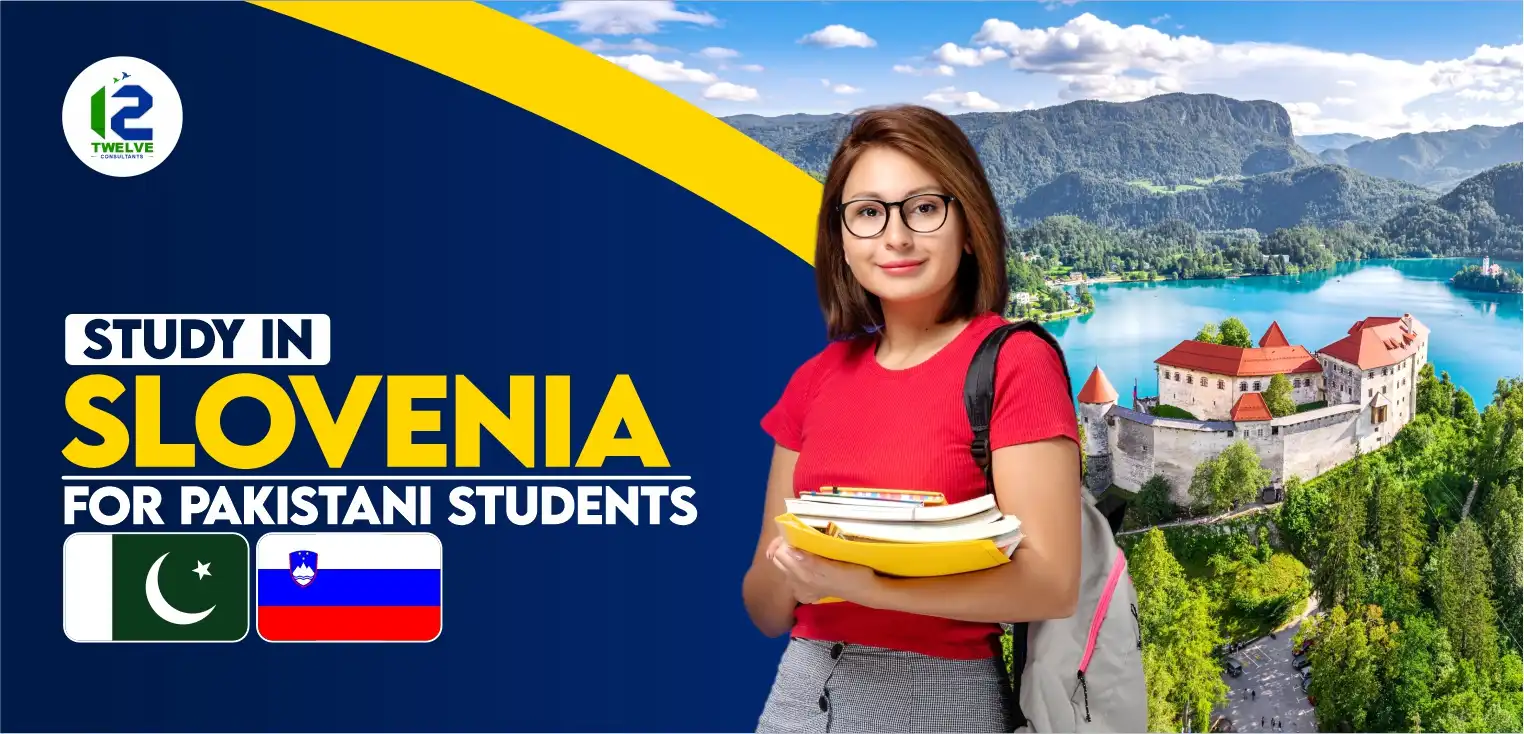

Study in Romania for Nigerain Stuents 2023
For Nigerian students seeking an exceptional educational experience, Romania has emerged as a promising destination. Renowned for its rich cultural heritage, breathtaking landscapes, and prestigious universities, Romania offers an ideal blend of academic excellence and cultural immersion. With an increasing number of Nigerian students choosing Romania as their study abroad destination, this Eastern European country has become a thriving hub for international education. From engineering and medicine to arts and humanities, Romanian universities provide a diverse range of programs taught in English, ensuring an inclusive and accessible learning environment. In this blog, we will explore the benefits and opportunities that studying in Romania holds for Nigerian students, unlocking a world of possibilities for their future endeavors.
Why Nigerian Students can peruse their career in Romania?
Nigerian students can pursue their career in Romania for several reasons. Here are a few factors that make Romania an attractive option for Nigerian students:
- Affordable Education: Romania offers relatively affordable education compared to many other European countries. Tuition fees and living costs in Romania are generally lower than in countries like the United Kingdom, the United States, or Australia, making it a more accessible choice for Nigerian students.
- Quality Education: Romanian universities have a long-standing tradition of providing quality education. Many universities in Romania are internationally recognized and offer a wide range of programs in various fields of study. The degrees obtained from Romanian universities are generally recognized globally, which can be advantageous for Nigerian students in their future careers.
- Scholarships and Funding Opportunities: Romanian universities and the Romanian government offer scholarships and funding opportunities for international students, including Nigerians. These scholarships can help alleviate the financial burden of studying abroad and make education more accessible to Nigerian students.
- Multicultural Environment: Romania is a diverse and multicultural country that welcomes international students. Nigerian students can experience a vibrant cultural exchange, interact with students from different backgrounds, and broaden their horizons through exposure to new perspectives and ideas.
- Safety and Security: Romania is considered a relatively safe country with a low crime rate. This aspect is crucial for Nigerian students and their families, as safety is a significant concern when choosing a study destination.
- European Union Membership: Romania is a member of the European Union (EU). Studying in an EU country like Romania provides Nigerian students with access to various opportunities within the EU, such as internships, networking, and potential job prospects in European countries
Eligibility Criteria for Nigerian Students to Study Bachelor's Degree in Romania
- Educational Qualifications: Applicants must have successfully completed their secondary education or its equivalent, such as the West African Senior School Certificate Examination (WASSCE) or the National Examinations Council (NECO) in Nigeria.
- Language Proficiency: Proficiency in the language of instruction is crucial. Most universities in Romania offer programs in Romanian, so students may need to provide proof of their Romanian language skills by passing a language proficiency test. However, many universities also offer programs taught in English, where English language proficiency tests like IELTS or TOEFL may be required.
- Academic Records: Students must provide their academic transcripts, which should include their grades and courses studied during their secondary education.
- Application Form: Nigerian students need to complete and submit the application form provided by the university or the Romanian Ministry of Education and Research. The form typically requires personal information, educational background, and program preferences.
- Proof of Identity: A valid Nigerian passport is required as proof of identity.
- Financial Proof: Students need to demonstrate sufficient funds to cover their tuition fees and living expenses during their studies in Romania. This may involve providing bank statements or scholarship award letters.
- Health Insurance: International students are usually required to have health insurance coverage for the duration of their studies. Students may need to obtain health insurance specific to Romania or provide evidence of an existing policy.
- Visa Requirements: Nigerian students must apply for a student visa at the Romanian embassy or consulate in Nigeria. This usually involves submitting the acceptance letter from the university, proof of financial means, health insurance, and a valid passport.
Eligibility Criteria for Nigerian Students to Study Bachelor's Degree in Romania
To study for a bachelor’s degree in Romania, Nigerian students need to meet certain requirements and fulfill specific prerequisites. Here are the common eligibility criteria:
- Educational Qualifications: Applicants must have successfully completed their secondary education or its equivalent, such as the West African Senior School Certificate Examination (WASSCE) or the National Examinations Council (NECO) in Nigeria.
- Language Proficiency: Proficiency in the language of instruction is crucial. Most universities in Romania offer programs in Romanian, so students may need to provide proof of their Romanian language skills by passing a language proficiency test. However, many universities also offer programs taught in English, where English language proficiency tests like IELTS or TOEFL may be required.
- Academic Records: Students must provide their academic transcripts, which should include their grades and courses studied during their secondary education.
- Application Form: Nigerian students need to complete and submit the application form provided by the university or the Romanian Ministry of Education and Research. The form typically requires personal information, educational background, and program preferences.
- Proof of Identity: A valid Nigerian passport is required as proof of identity.
- Financial Proof: Students need to demonstrate sufficient funds to cover their tuition fees and living expenses during their studies in Romania. This may involve providing bank statements or scholarship award letters.
- Health Insurance: International students are usually required to have health insurance coverage for the duration of their studies. Students may need to obtain health insurance specific to Romania or provide evidence of an existing policy.
- Visa Requirements: Nigerian students must apply for a student visa at the Romanian embassy or consulate in Nigeria. This usually involves submitting the acceptance letter from the university, proof of financial means, health insurance, and a valid passport.
Fee Structure in Romania for Nigerian Students
|
University |
Program |
Average Tuition Fees (per year) |
|
University of Bucharest |
Computer Science |
€2,000 – €3,000 |
|
Medicine |
€5,000 – €7,000 |
|
|
Technical University of Cluj-Napoca |
Engineering |
€2,500 – €3,500 |
|
Architecture |
€2,500 – €4,000 |
|
|
Babes-Bolyai University |
Business Administration |
€2,000 – €3,500 |
|
Psychology |
€1,500 – €2,500 |
|
|
Alexandru Ioan Cuza University |
Law |
€1,500 – €2,500 |
|
Economics |
€1,500 – €2,500 |
|
|
Politehnica University of Timisoara |
Electronics |
€2,000 – €3,500 |
|
Mechanical Engineering |
€2,000 – €3,500 |
|
|
University of Arts in Bucharest |
Fine Arts |
€2,500 – €4,000 |
|
Film and Media |
€2,500 – €4,000 |
Top 10 Universities in Romania for Nigeran Students
- University of Bucharest: One of the oldest and most prestigious universities in Romania, offering a wide range of programs across disciplines such as humanities, social sciences, natural sciences, and engineering.
- Babes-Bolyai University: A leading institution known for its strong academic reputation and diverse range of programs, including fields like natural sciences, social sciences, humanities, and arts.
- Politehnica University of Bucharest: Renowned for its engineering and technical programs, this university is a hub for innovation and research in fields like computer science, electronics, telecommunications, and civil engineering.
- Alexandru Ioan Cuza University: The oldest higher education institution in Romania, offering programs in areas such as law, economics, psychology, political science, and international relations.
- Technical University of Cluj-Napoca: A top choice for engineering and technical studies, providing high-quality education in fields such as mechanical engineering, computer science, electrical engineering, and architecture.
- University of Medicine and Pharmacy “Carol Davila” Bucharest: A leading medical university with a rich tradition in healthcare education, producing highly skilled doctors and medical professionals.
- West University of Timisoara: Recognized for its excellence in natural sciences, mathematics, physics, chemistry, and biology, and offering a wide range of programs in humanities, social sciences, and arts.
- University of Agricultural Sciences and Veterinary Medicine of Cluj-Napoca: Specializing in agriculture, forestry, horticulture, and veterinary medicine, this university is a center for agricultural research and education.
- University of Arts in Bucharest: A prestigious institution for fine arts, music, theatre, and film studies, nurturing creativity and talent in various artistic disciplines.
- Ovidius University of Constanta: Situated in a coastal city, this university offers programs in fields like marine sciences, economics, computer science, and law, attracting students interested in maritime studies and related industries.
Required Documents in Romania for Nigerian Students
When applying to study in Romania as a Nigerian student, you will typically be required to provide the following documents:
- Application Form: Complete and submit the application form provided by the university or the Romanian Ministry of Education and Research.
- Educational Documents: Include copies of your academic transcripts and certificates from your secondary education or any previous university-level studies. These should be notarized and translated into Romanian or English if they are in another language.
- Proof of Language Proficiency: Depending on the language of instruction for your chosen program, you may need to provide proof of language proficiency. This could be a language proficiency test certificate such as IELTS, TOEFL, or a Romanian language proficiency test.
- Passport: Provide a valid passport that is recognized internationally.
- Proof of Financial Means: Demonstrate that you have sufficient funds to cover your tuition fees, living expenses, and other related costs during your stay in Romania. This could include bank statements, scholarship letters, or sponsorship letters.
- Health Insurance: Obtain health insurance coverage that is valid in Romania for the duration of your studies. This is usually mandatory for international students.
- Visa: Apply for a student visa at the Romanian embassy or consulate in Nigeria. You will need to submit the acceptance letter from the university, proof of financial means, health insurance, and a valid passport.
Living Cost in Romania for Nigerian Students
- Accommodation: The cost of accommodation will depend on whether you choose to live on-campus in a university dormitory or rent a private apartment. On-campus accommodation is usually more affordable, ranging from €100 to €300 per month. Renting a private apartment can range from €200 to €500 per month, depending on the location and size of the apartment.
- Food: Grocery expenses in Romania are generally reasonable. On average, monthly food expenses can range from €150 to €250, depending on individual eating habits and choices. Cooking your meals at home can help save costs compared to eating out frequently.
- Transportation: Public transportation in Romania, such as buses, trams, and metros, is affordable and well-developed. Monthly transportation expenses can range from €20 to €50, depending on the city and the distance you need to travel.
- Utilities: Utility costs, including electricity, water, heating, and internet, can amount to around €100 to €150 per month, depending on the size of the apartment and personal consumption.
- Health Insurance: Health insurance costs for international students vary, and it is important to have appropriate health insurance coverage. The cost can range from €50 to €100 per month, depending on the coverage and insurance provider.
- Miscellaneous Expenses: Miscellaneous expenses, including entertainment, leisure activities, and personal expenses, can vary greatly based on individual preferences. It is advisable to allocate a budget of around €100 to €200 per month for these expenses.
Student Visa Process of Romania from Nigeria
- Acceptance Letter: Obtain an acceptance letter from a recognized Romanian educational institution. You will need this letter to proceed with your visa application.
- Gather Required Documents: Collect the necessary documents for your visa application, which may include:
- Completed visa application form (available from the Romanian embassy or consulate).
- Valid passport with a minimum of six months validity beyond your planned stay in Romania.
- Two recent passport-sized photographs.
- Acceptance letter from the Romanian educational institution.
- Proof of financial means, such as bank statements or scholarship letters, to cover your tuition fees and living expenses.
- Health insurance coverage valid in Romania.
- Proof of accommodation arrangements in Romania (such as a rental agreement or university accommodation confirmation).
- Proof of payment of visa application fee.
- Submit Visa Application: Visit the Romanian embassy or consulate in Nigeria to submit your visa application. Make sure to check the embassy’s website for specific instructions and requirements.
- Attend Interview (if required): Some applicants may be called for an interview at the embassy or consulate. Prepare for the interview by being knowledgeable about your chosen program and the reasons why you wish to study in Romania.
- Pay Visa Application Fee: Pay the required visa application fee at the embassy or consulate. The fee amount may vary, so confirm the current fee with the embassy or consulate beforehand.
- Wait for Visa Processing: After submitting your application and completing the necessary formalities, await the processing of your student visa. The processing time can vary, so it is advisable to apply well in advance of your intended travel date.
- Receive Visa Decision: Once your visa application is processed, you will be notified of the decision. If approved, you will receive a visa sticker affixed to your passport.
- Travel to Romania: Make travel arrangements and ensure you have all the required documents, including your passport with the visa sticker, acceptance letter, and other relevant documents. Upon arrival in Romania, you may be required to register with the local authorities within a specified timeframe.
Advantages of Studying in Romania for Nigerian Students
Studying in Romania offers several advantages for Nigerian students. Here are some key benefits:
- Affordable Education: Compared to many other European countries, Romania offers affordable tuition fees and living costs, making it an attractive option for Nigerian students seeking quality education without financial burden.
- Diverse Range of Programs: Romanian universities provide a wide range of academic programs, including fields like medicine, engineering, business, humanities, and arts. Students can choose from numerous disciplines and find programs that align with their interests and career goals.
- Quality Education: Romanian universities are known for their academic excellence and rigorous standards. Many universities have a strong reputation and are internationally recognized, providing Nigerian students with high-quality education and recognized degrees.
- Multicultural Environment: Romania offers a multicultural environment, where students from different nationalities and backgrounds come together. This diversity fosters cross-cultural understanding, enhances global perspectives, and promotes networking opportunities.
- English-Taught Programs: Many Romanian universities offer programs taught in English, making it easier for Nigerian students who may not be fluent in Romanian to pursue their studies. This ensures accessibility and provides a comfortable learning environment.
- Scholarships and Financial Support: Romanian universities and the government offer various scholarships and financial aid programs for international students, including Nigerians. These opportunities can help alleviate financial burdens and make education more accessible.
- Rich Cultural Experience: Romania is a country with a rich cultural heritage, history, and picturesque landscapes. Nigerian students studying in Romania have the opportunity to explore and immerse themselves in a vibrant culture, experience new traditions, and build lifelong memories.
- Central European Location: Romania’s central European location allows easy access to other European countries, providing Nigerian students with the opportunity to travel and explore different cultures and destinations during their study breaks.
- Research and Innovation Opportunities: Romanian universities are involved in various research projects and offer opportunities for students to engage in cutting-edge research and innovation, contributing to their academic and professional growth.
- Career Prospects: Graduating from a Romanian university can enhance career prospects for Nigerian students. Romania has a growing job market, with opportunities in sectors such as IT, engineering, medicine, business, and more. Additionally, an international degree and experience can add value to a student’s resume in the global job market.
Disadvantages of Studying in Romania for Nigerian Students
- Language Barrier: The predominant language of instruction in many Romanian universities is Romanian. Nigerian students who are not proficient in the language may face difficulties in understanding lectures, engaging in discussions, and completing coursework. While some programs are offered in English, limited options may be available for certain fields of study.
- Cultural Adjustment: Adjusting to a new culture, customs, and social norms can be challenging. Nigerian students may experience cultural differences, which can lead to homesickness, feelings of isolation, or a sense of being an outsider. Adapting to new surroundings and building social connections may require time and effort.
- Limited Diversity: Compared to more cosmopolitan countries, Romania may have limited diversity in terms of international student population. Nigerian students may find themselves in a less multicultural environment, which may affect their ability to interact with a wide range of perspectives and cultures.
- Yes, studying in Romania can be a good option for Nigerian students due to its affordable education, diverse range of programs, quality education, and multicultural environment.
- Yes, there are scholarship opportunities available for Nigerian students to study in Romania. Romanian universities, as well as the Romanian government, offer various scholarships and financial aid programs. It is advisable to check with specific universities and scholarship providers for eligibility criteria and application procedures.
- The language requirements can vary depending on the program and university. Some programs are taught in English, while others may require proficiency in Romanian. It is important to check the language requirements for the chosen program and verify if language proficiency tests such as IELTS or TOEFL are necessary.
- The cost of studying and living in Romania can vary depending on factors such as the university, program, location, and personal lifestyle choices. On average, tuition fees can range from €2,000 to €7,000 per year, and living expenses can range from €400 to €800 per month. It is advisable to research specific universities and consider personal budgeting factors.
- Nigerian students will need to apply for a student visa to study in Romania. The visa requirements typically include a completed visa application form, a valid passport, acceptance letter from a Romanian university, proof of financial means, health insurance coverage, and payment of the visa application fee. It is recommended to contact the Romanian embassy or consulate in Nigeria for specific visa requirements and procedures.
Recent Blogs
Request a Call-back
Study in Finland for Pakistani Students | Tuition Fee | Eligibility Criteria | Finland Visa Guide | Scholarships In Finland Finland, known for its high-quality
Study in Ireland for Pakistani Students | Tuition Fee | Eligibility Criteria | Ireland Visa Guide | Scholarships In Ireland Ireland has become a beacon
Study in Norway for Pakistani Students | Tuition Fee | Eligibility Criteria | Norway Visa Guide | Scholarships In Norway Norway, with its breathtaking landscapes,
Study in Slovenia for Pakistani Students | Tuition Fee | Eligibility Criteria | Slovenia Visa Guide | Scholarships In Slovenia Slovenia, situated at the crossroads
Study in Switzerland for Pakistani Students | Tuition Fee | Eligibility Criteria | Switzerland Visa Guide | Scholarships In Switzerland Switzerland attracts medical students with
Study in Switzerland for Pakistani Students | Tuition Fee | Eligibility Criteria | Switzerland Visa Guide | Scholarships In Switzerland Switzerland boasts a world-renowned education
Study in MBBS for Pakistani Students | Tuition Fee | Eligibility Criteria | MBBS Visa Guide | Scholarships In Hungry Hungary holds a strong educational
Study in Hungry for Pakistani Students | Tuition Fee | Eligibility Criteria | Hungry Visa Guide | Scholarships In Hungry Hungary holds a strong educational
Study MBBS in Portugal for Pakistani Students | Tuition Fee | Eligibility Criteria | Portugal Visa Guide | Scholarships In Portugal Portugal offers a compelling









